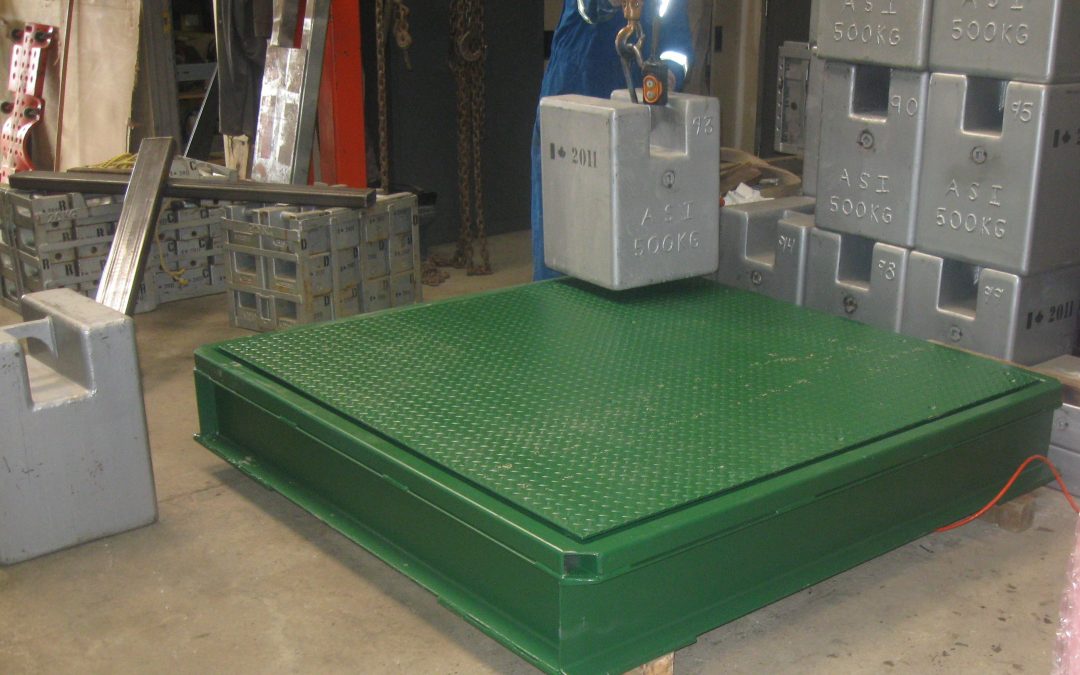Floor scales are essential to industries across Alberta—from weighing tools before transport to ensuring manufacturing inventory is tracked efficiently. But with the diverse needs of businesses, it can be difficult to find the right option. Fortunately, we’ve seen it all and have a few tips to make your search easier.
Explore with us at Accurate Scale as we dive into some of the most common mistakes buyers make when purchasing floor scales. Read on as we weigh in with more details!
- Skipping Routine Calibration and Maintenance
Over time, floor scales will typically lose accuracy. This change occurs as the scale’s load cells, which are responsible for measuring weight, gradually fatigue. In order to combat weight drifting and inaccuracies, prioritize regular calibration. It’s generally a good rule of thumb to have your floor scale calibrated annually. Regular calibration ensures your scale continues to perform at top precision, which is often around ±1% depending on the model and application.
That being said, performing regular maintenance is also key to ensuring your scale continues to function at high capacity. Here are some key tasks which should be performed regularly:
- Keep the area immediately around the scale tidy. Object touching or learning against the scale can result in inaccurate readings.
- Clean and wipe down the scale regularly.
- Make it a habit to inspect any cables for fraying or tears regularly.
- Buying Without Understanding Weight Range and Division
Before investing in a floor scale, it’s essential to have an understanding of the typical loads you’ll be measuring. It’s a surprisingly common misconception that larger floor scales are better. But in actuality, buying a floor scale with a substantially higher capacity than your loads only results in low accuracy and wasted money. If you’re weighing bags of grain, you won’t need the same capacity as you would for pallets of bricks.
In fact, there are some instances where high-capacity bench scales work even better than floor scales. HW Series bench scales are ideal for small to mid-weight loads, with a weight capacity of 600kg (1200 lbs) on the LHW-600 Model. This versatile model offers ultimate flexibility on the worksite, with a fully removable indicator post and dual supply power.
- Overlooking Useful Add-Ons and Upgrades
While upgrades aren’t always required, they can save you both time and money in the long run. For example, a printer upgrade can easily print shipping labels or information sheets from measurements in real time.
That being said, add-ons are more than just quality-of-life upgrades. While wear and tear on floor scales over time is normal, it can also be dramatically reduced. A quality scale guard or ramp can be the difference between a floor scale replacement in five years vs. ten.
- Not Consulting Experts Before Buying
Every business is different, with unique needs. Before investing in a floor scale, take the time to consult with an expert. You know your business best, and scale technicians know weighing solutions best. By working together, you’ll find a solution that truly works best for you.
There’s no downside to getting a second opinion or seeking guidance, especially if you’ll be needing it for Legal for Trade activities.
Scale Smarter, Not Harder with Accurate Scale
At Accurate Scale, we take our name seriously. We’ve been supplying businesses across Alberta with expert care and scales with superior performance since 1978. Reach out to our team today, and get one step closer to finding the right scale for your business.

